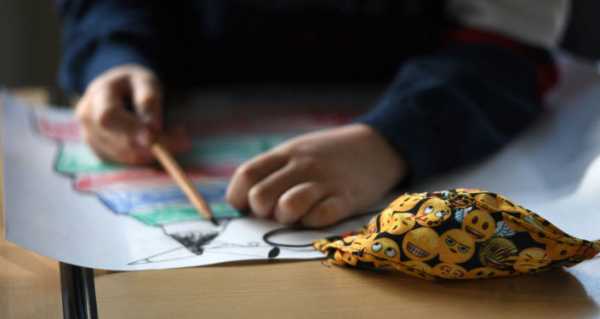
Eight to ten percent of COVID-19 cases are children, according to data provided by the Russian public health watchdog, Rospotrebnadzor, with usually a mild manifestation of the disease. Nevertheless, studies are underway to assess the risk of infection and better understand transmission in this age group.
In recent months COVID-19 has started to affect more and more children, with the medical community attributing this to the more aggressive so-called delta stain of the virus. However, the illness takes on a typically milder form in the case of younger age groups, with patients almost always recovering.
In tragic isolated cases where the disease has resulted in death, the outcome was often lined with severe attendant pathologies, Anton Ravdin, a pediatrician at the Lapino Clinical Hospital “Mother and Child” outside Moscow was cited as saying.
The Delta strain is able to trigger an infection with a lower viral load than the Wuhan version of the SARS-CoV-2. Delta, in its transmissibility, has been likened to chickenpox, which is one of the most contagious viruses known. Each individual can spread the virus to as many as “90 percent of the people close to that person”, according to the US Centers for Disease Control and Prevention (CDC).
There is a persistent popular belief that children do not catch COVID-19 or if they do, experience symptoms similar to those of a mild cold. Indeed, in younger age groups there are often none of the cough, runny nose, or other characteristic signs of a cold, said Anton Ravdin. The infants might seem lethargic, with a lack of appetite and sleeping issues. They do often display a fever, said the doctor, with the temperature rising to 38 C.

A medic prepares a dose of Russian Gam-COVID-VAK (trademark “Sputnik V”) coronavirus vaccine in the shopping mall “Gostiny Dvor”, in Tula, Russia.
When asked about whether the loss of smell, a distinct feature of COVID-19, had been deemed a predictor of whether someone has been infected, the Russian doctor said it might be considered more typical for adolescents. The latter may suffer from the disease in a manner similar to adults. They can display a mild fever for three to four days, accompanied, for example, by increased fatigue and muscle pain. Then they recover in a matter of days.
Or the scenario might be more grim: there have been cases of 13-14-year-old children falling seriously ill with massive lung damage, severe intoxication, and prolonged persistent fever.
There is no one specific sign of COVID-19 in children, said Ravdin.
A multisystem inflammatory syndrome in children (MIS-C) is a rare but grave complication associated with COVID-19. It is initiated by an overactive immune response in youngsters after exposure to the virus.
The autoimmune systemic vasculitis causes inflammation of the small blood vessels. In terms of the mechanism of occurrence and how it runs its course, it is similar to Kawasaki syndrome. In this case, the disease puts pressure on the heart, as blood vessels leading towards the heart get inflamed and incapable of carrying adequate blood.
Multisystem syndrome has been successfully treated and is reversible, insisted the Russian pediatrician.
The severity of the coronavirus disease, whether in adults of children, claim medical professionals, is also dependent on the viral load. Therefore, people are advised against visiting crowded places.

A vial with Russia’s Sputnik V coronavirus vaccine is placed on a table in a medical room at a vaccination center in the GUM, State Department store, in Red Square in Moscow, Russia, Thursday, July 1, 2021.
Along with physical distancing, face masks are recommended as a tool to help prevent the spread of SARS-CoV-2, the virus that causes COVID-19.
Russia has confirmed 6,534,791 cases of coronavirus and 168,049 deaths, according to the national coronavirus information center. On Wednesday the country reported 21,571 new coronavirus cases and 799 deaths. Meanwhile, Health Minister Mikhail Murashko said Russia’s Sputnik V vaccine is 83 percent effective against the Delta variant of the virus.
Sourse: sputniknews.com






